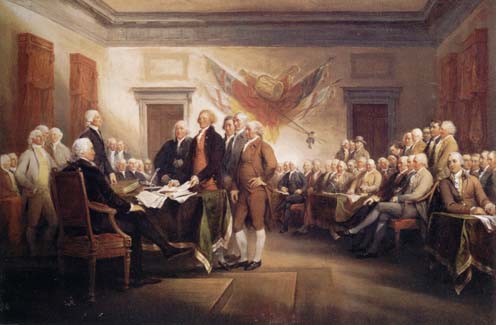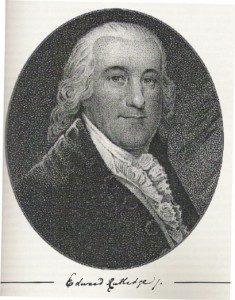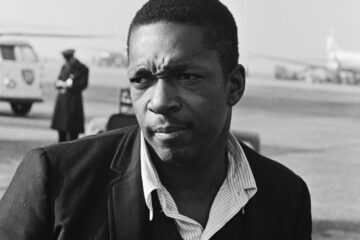Those Who Stood Up and Signed: Part 12

I still remember how our Social Studies in high school drilled into our minds how the signers of the Declaration of Independence were risking their lives signing that document. That they were, yet they were not going to allow themselves to be bullied to by any music celebrity, actor, anyone who considered themselves “royalty”, or anyone regardless of their religious beliefs, sexual preferences, country of origin or gender.
Much like their world, in today’s world, standing up for a certain political view can get you seriously injured or killed. Neither side has a monopoly on peace or love. If you dare defy an anti-Trump protester one can get seriously hurt, injured, tortured on Facebook, or killed. The events in Charlotte, NC have shown us that that evil organization, the KKK is still active too.
I want us to better understand these 56 men who were willing to risk everything for their country. So, in the following weeks, I am going to tell you about them, in alphabetical order mostly. I am not sure how many weeks it is going to take. I guess it will be based on how much I can actually find out about them as individuals.
Most of the biographical information will be taken from The Society of the Descendants of the Signers of the Declaration of Independence which gives extensive bios of each of the signers. Here, I shall highlight some of the parts of their lives that showed their character and spirit.
 Edward Rutledge (11/23/1749-01/23/1800) was a representative from South Carolina. Though a lot is not known about his early years, it is known that he left for England at 20 and studied law at The Temple. The Temple in London was an ancient institution for teaching law founded by the Knights Templar. Maybe because of this he became good friends with George Washington. When he returned to South Carolina, he became a lawyer and became involved in politics. When attending the Continental Congress in 1776, he was strongly opposed to independence. However, after discussing it with his colleagues from South Carolina, he signed in August. He was the youngest signer at 26. During the war he spent time in a British prison. As opposed to many other Founding Fathers, Rutledge’s fortunes increased substantially due to the war.
Edward Rutledge (11/23/1749-01/23/1800) was a representative from South Carolina. Though a lot is not known about his early years, it is known that he left for England at 20 and studied law at The Temple. The Temple in London was an ancient institution for teaching law founded by the Knights Templar. Maybe because of this he became good friends with George Washington. When he returned to South Carolina, he became a lawyer and became involved in politics. When attending the Continental Congress in 1776, he was strongly opposed to independence. However, after discussing it with his colleagues from South Carolina, he signed in August. He was the youngest signer at 26. During the war he spent time in a British prison. As opposed to many other Founding Fathers, Rutledge’s fortunes increased substantially due to the war.
Roger Sherman (04/19/1721-07/23/1793) was raised a Quaker and “… The experience [of being raised a Quaker] instilled in Roger an unbending set of Christian values that were to serve him well throughout his life, values that are unfortunately not visible in many of our leaders in the twenty-first century.” He was a shoemaker and surveyor by trade as a young man. He also wrote almanacs. However, a lawyer saw a keen legal mind behind his writing and encouraged him to study for the bar. So several years later, he was admitted to the Connecticut Bar and he was soon elected to political positions in New Haven, Connecticut. As he grew in importance in law and government and was elected to various other positions, and the Stamp Act became an issue, the topic of independence came to the forefront. While initially very, very conservative regarding independence, he attended both Continental Congresses. He was also part of the committee to write the Declaration.
“John Trumbull’s well-known painting, often mistakenly called the “Signing of the Declaration of Independence”, shows only the presentation of the draft. It now hangs in the United States Capitol Rotunda and is the source of the figure on the two-dollar bill. The five figures standing before the table, left-to-right from the viewer’s perspective, are: John Adams, Roger Sherman, Robert R. Livingston, Thomas Jefferson and Benjamin Franklin.”
He worked tirelessly during the revolution to establish and setup the government of the United States. He also did a lot of writing for the Articles of Confederation and was part of the Constitutional Convention. The Americans revolution destroyed him financially.
James Smith (1719-07/11/1806) was raised in Chester County, PA. He went to the Philadelphia Academy (the University of Pennsylvania) and was admitted to the Pennsylvania Bar in 1745. He was very much an agarian person and started practicing in Shippensberg PA,. later moving to York PA–obviously uninterested in seeing Shippensberg became the metropolis it is today. He bought an iron foundry and his law business grew. He also organized and became Captain of the local militia which also rapidly grew. He was also elected to the State Assembly and championed the cause of independence there. After signing, he returned home and continued to serve in various capacities in Pennsylvania. He was made a Brigadier General in the state militia. He lived to 87.
When Richard Stockton (10/01/1730-02/28/1781) was the Brad Pitt of the group as he was tall and good-looking had a lot charisma, and went on a lot of adventures. He studied at Nottingham Academy in Maryland, and then attended the College of New Jersey at Newark. He remained loyal to New Jersey for the rest of his life and represented them at the Continental Congress. After becoming a lawyer he traveled quite a lot to different parts of the United Kingdom, meeting many people, including Benjamin Franklin. He also met the Rev. John Witherspoon and Benjamin Rush. He was appointed to many positions for Britain in the colonies but “…when at last all his attempts to change the minds of the British failed, he decided he must, when given a choice of King or country, choose his native country. He resigned his royal appointments and New Jersey elected him to the Continental Congress in June 1776.”During the war, he traveled and oversaw the troops and supplies in places like Ticonderoga and other northern locations. However, later the winter of 1776-1777 was spent in a British prison as he was captured when he went home to help his family. George Washington himself pleaded for and demanded his release. However, due to the horrific conditions in the prison, he never fully recovered and died 4 years later.
Romans 12:2 Do not be conformed to this world, but be transformed by the renewal of your mind, that by testing you may discern what is the will of God, what is good and acceptable and perfect.
————————————————————W.







No Comment